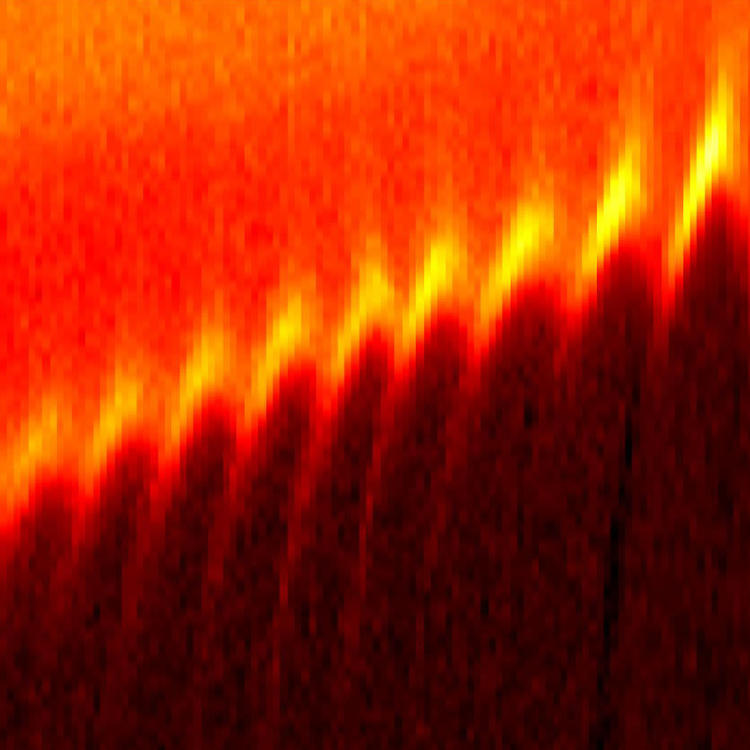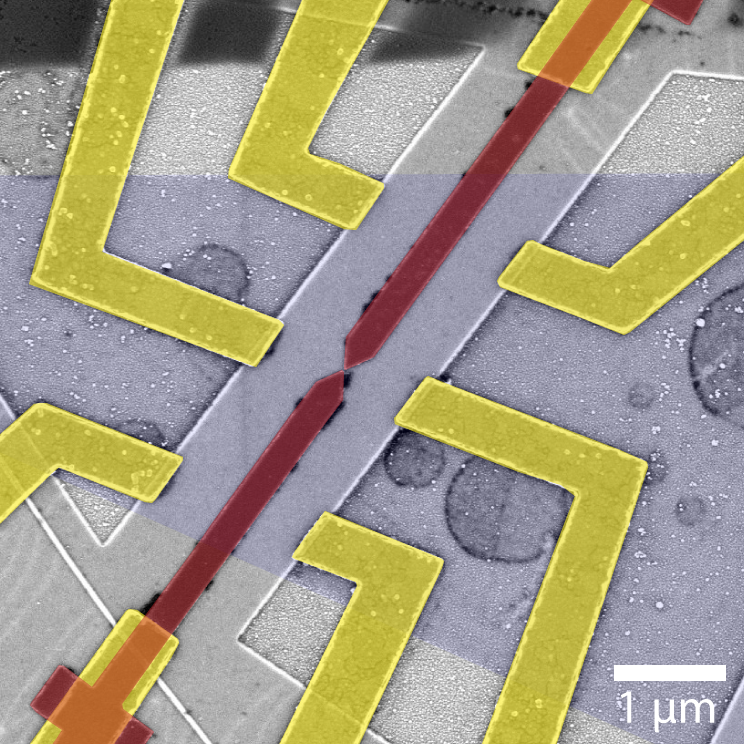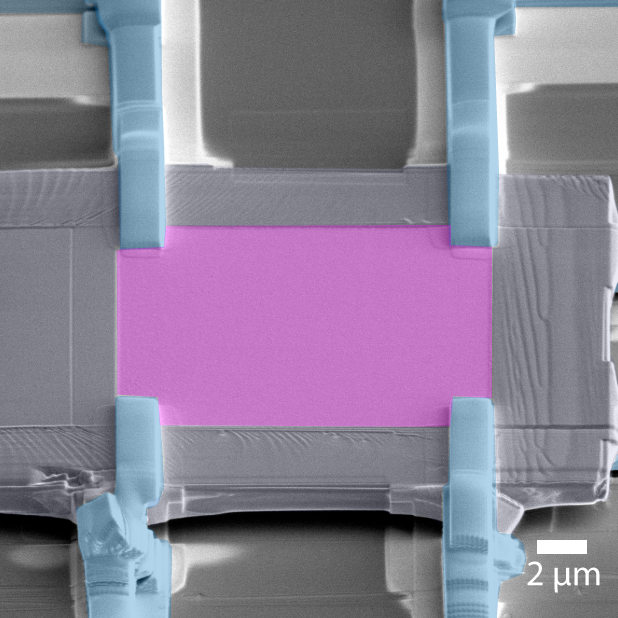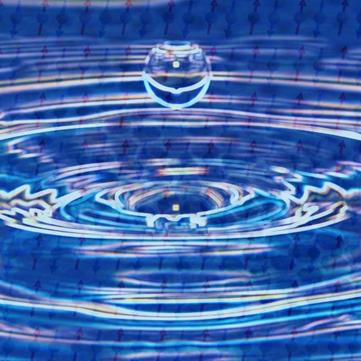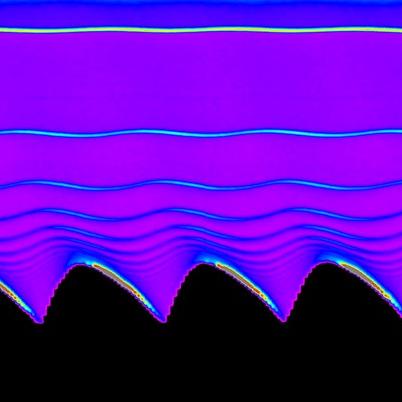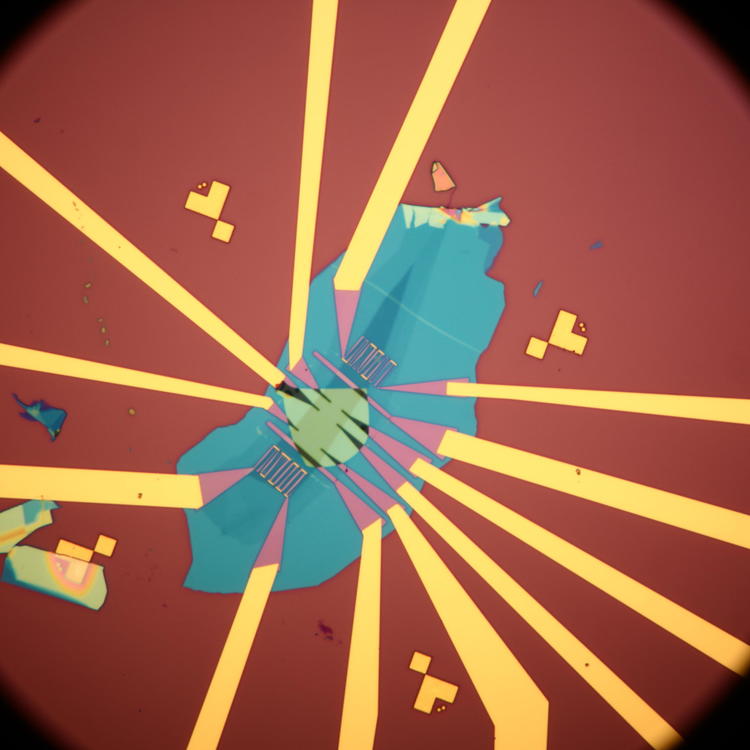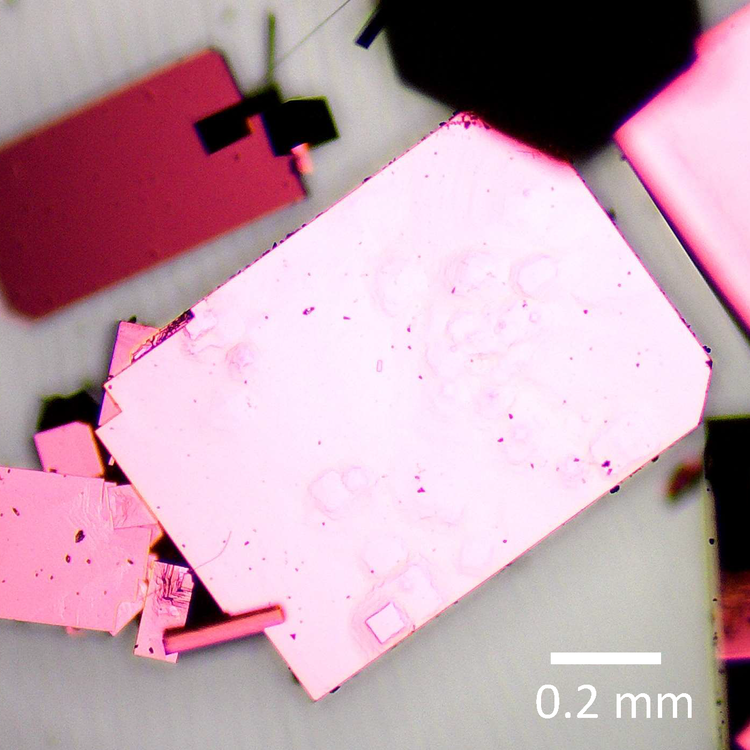Edge supercurrents of superconducting topological materials and their applications
Some superconducting topological materials host supercurrents localized in edge states. These supercurrents can be used to probe various interactions between different condensates in hybrid systems.
Graphene in a strong magnetic field
We are studying electrical transport in the Quantum Hall regime in ultrahigh mobility graphene/boron nitride heterostructures.
Microstructured quantum materials
Some materials exhibit novel transport phenomena when they are made very thin. We are studying these phenomena using various transport techniques and simulations.
Thermal transport of charge-neutral excitations
We use thermal measurement techniques to understand the charge-neutral excitations in exotic systems that cannot be probed in electrical transport measurements.
Phase-tuning Josephson junctions of topological materials
Using asymmetric superconducting quantum interference devices (SQUID), we tune the phases of and study the transport phenomena in topological superconducting junctions.
Cuprate superconductors in the two-dimensional limit
We create nanodevices of cuprate superconductors and perform transport measurements on them to understand the unsolved enigma to this date – the origin of high temperature superconductivity.
Experiments on bulk crystals
We study transport in bulk systems including quantum oscillations/Fermi surface measurements, magnetoresistance and Hall effect, and torque magnetometry.
-
Our lab has conducted research in various fields, such as topological insulators, cuprate superconductors, the anomalous Hall effect in ferromagnets, materials with large thermopower, unusual magnetism, charge density wave materials, and topics in biophysics. For more information, refer to Publications and Archive tabs.
-
Upon joining our lab, junior members are usually paired up with senior members to work on the ongoing projects. After sufficient training, they are encouraged to expand the current projects or come up with and explore new ideas under Prof. Ong's advising.

